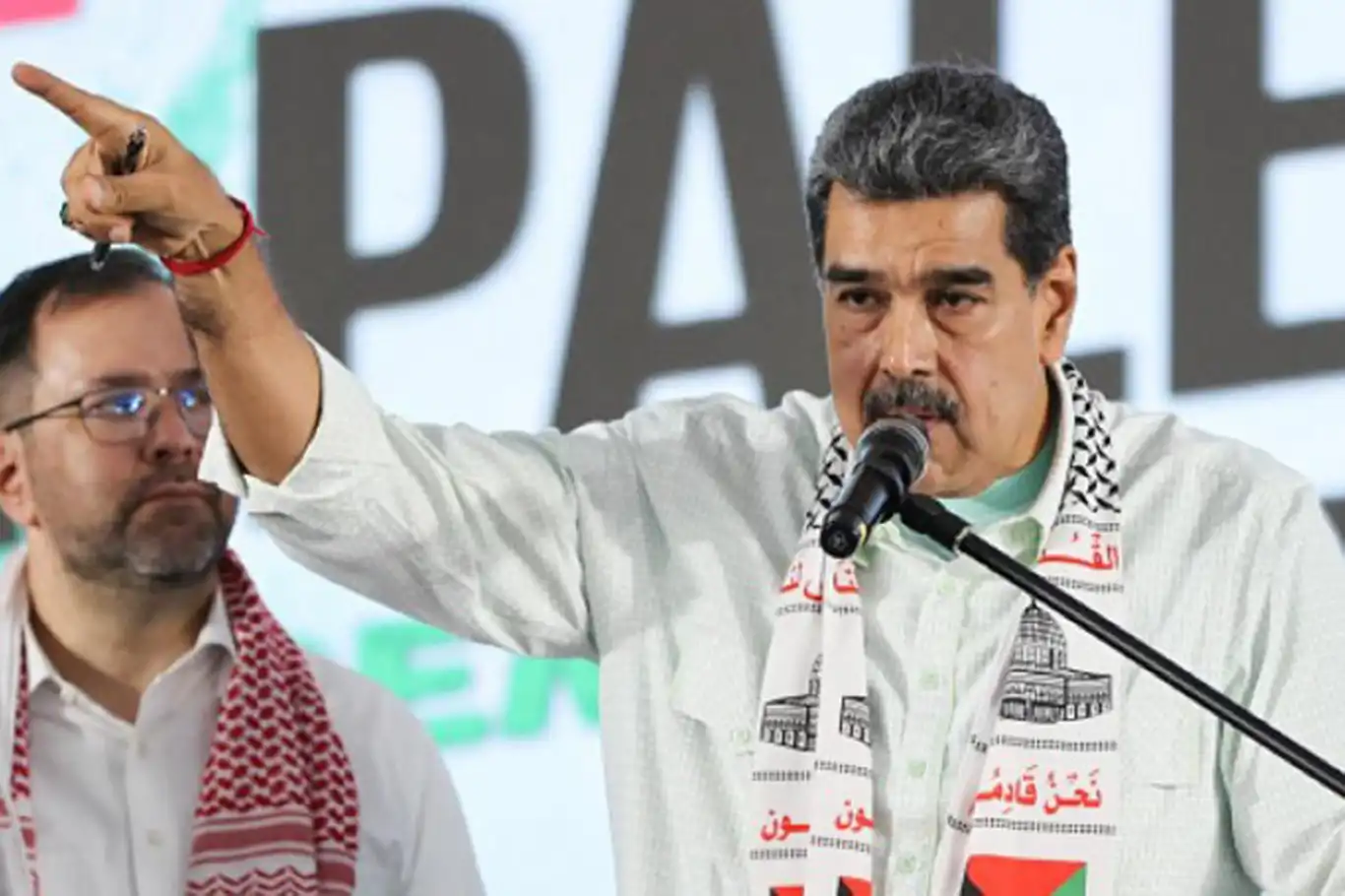U.S. escalates hostile campaign against Venezuela with $50 million bounty on Maduro


The U.S. State Department and Department of Justice announced a $50 million reward on Thursday for information leading to the arrest or conviction of Venezuelan President Nicolás Maduro, accusing him of violating U.S. narcotics laws.
The bounty, doubled from its previous $25 million set in January, is being offered under the Narcotics Rewards Program and signals an aggressive escalation in the U.S. government’s long-standing crusade to oust the Venezuelan leader.
The U.S. claims Maduro has been a central figure in the so-called Cartel de los Soles, a nebulous organization accused of trafficking drugs into the United States for over a decade. On July 25, the U.S. Treasury Department further labeled the group a Specially Designated Global Terrorist (SDGT) entity, citing its alleged role in international narcotics trafficking. Critics argue these designations are politically motivated, lacking transparent evidence and serving as tools to justify U.S. interventionist policies in Latin America.
The announcement also took aim at Venezuela’s recent presidential election on July 28, 2024, with the U.S. refusing to recognize Maduro as the winner and dismissing his legitimacy as president. The State Department’s statement accused Maduro of “strangling democracy” and failing to provide evidence of his electoral victory, ignoring Venezuela’s sovereign electoral processes and the complexities of its political landscape.
U.S. Secretary of State Marco Rubio amplified the rhetoric on X, branding Maduro a “dictator” and the Cartel de los Soles a “narco-terror organization” that has “taken over Venezuela.” Such inflammatory language, critics contend, reflects Washington’s pattern of demonizing foreign leaders to pave the way for regime change, a tactic seen in past interventions across Latin America and beyond.
This latest bounty is viewed by many as an extension of the U.S.’s decades-long campaign to undermine Venezuela’s government through sanctions, economic warfare, and diplomatic isolation. These policies have crippled Venezuela’s economy, exacerbating hardship for ordinary citizens while failing to dislodge Maduro’s administration. The U.S.’s refusal to engage diplomatically and its reliance on coercive measures like bounties and sanctions have drawn condemnation from international observers, who argue they violate Venezuela’s sovereignty and fuel regional instability.
As the Trump administration doubles down on its confrontational stance, questions remain about the effectiveness and morality of targeting foreign leaders with financial bounties, a practice that critics say reeks of imperialist overreach and undermines international law. For now, the $50 million reward stands as a stark symbol of Washington’s unrelenting hostility toward Caracas, further dimming prospects for constructive dialogue. (ILKHA)
LEGAL WARNING: All rights of the published news, photos and videos are reserved by İlke Haber Ajansı Basın Yayın San. Trade A.Ş. Under no circumstances can all or part of the news, photos and videos be used without a written contract or subscription.
UK Prime Minister Keir Starmer strongly denounced Israel's announced plan to fully occupy the Gaza Strip, calling the decision "wrong" and urging the Israeli government to reconsider immediately.
The United Nations has sounded a grim alarm over the rapidly deteriorating humanitarian crisis in the besieged Gaza Strip, revealing that malnutrition rates among children have reached the highest levels ever recorded — a direct result of Israel’s ongoing blockade and deliberate restrictions on humanitarian aid.
In a significant political shift, Germany announced on Friday that it will suspend all military equipment exports to Israel that could be used in its ongoing genocide on the Gaza Strip.
At least 10 people have been killed and 33 remain missing after flash floods struck northwestern China’s Gansu province, state media reported on Friday.